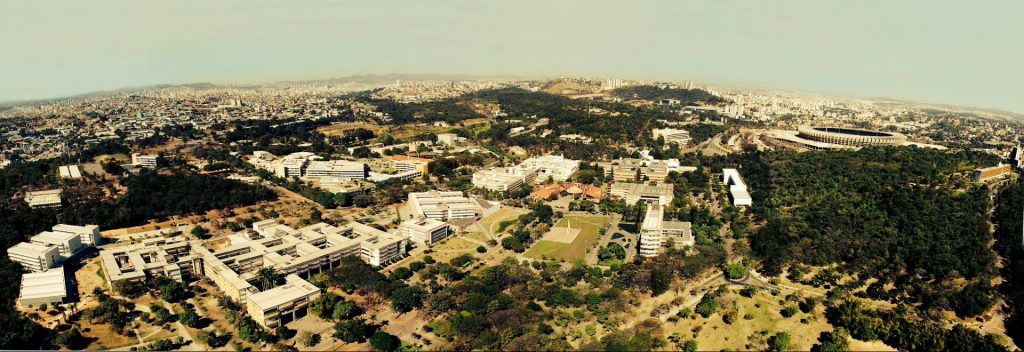
Bird-eye view of the Federal University of Minas Gerais’ main campus in the northeastern region of Belo Horizonte called Pampulha. Photograph by Mr. Foca Lisboa, Federal University of Minas Gerais
Capes/PrInt at UFMG aims at academic excellence based on the quality of ongoing and prospective international partnerships, seeking to welcome difference, integrate knowledge and contribute to building a more egalitarian and fair society as well as increasingly multicultural and diversity-friendly scholarly communities.
Drawing on the principles of reciprocity and solidarity between institutions, cultures, and nations, the program relies on the diverse collaborations hitherto established and is intent on strengthening consolidated partnerships and seeking to establish new collaborations. Internationalization at UFMG has an inclusive policy, a cross-cutting perspective and diversity of knowledge production as top priorities.
The University has pursued an internationalization agenda for over 20 years now thanks to the commitment of its past presidents in office. Its exponential growth has made it essential that the program be consolidated and integrated with teaching, research and extension activities.
In recent years, UFMG has felt the need for greater coordination and institutional investments to leverage its international status, evidenced by its excellent performance in several fields as recognized by international and Brazilian institutions, including CAPES. The current plan for internationalization proposes 12 strategic actions, namely: Institutional consolidation of internationalization, International partnerships, Inter-university collaborative networks, In-house internationalization / Internal culture shift towards internationalization, Welcoming practices and infrastructure, Specialized study centers, Management training, Faculty training, Language proficiency enhancement, Regular offer of courses taught in languages other than Portuguese, Academic production in languages other than Portuguese, and Institutional communication.







